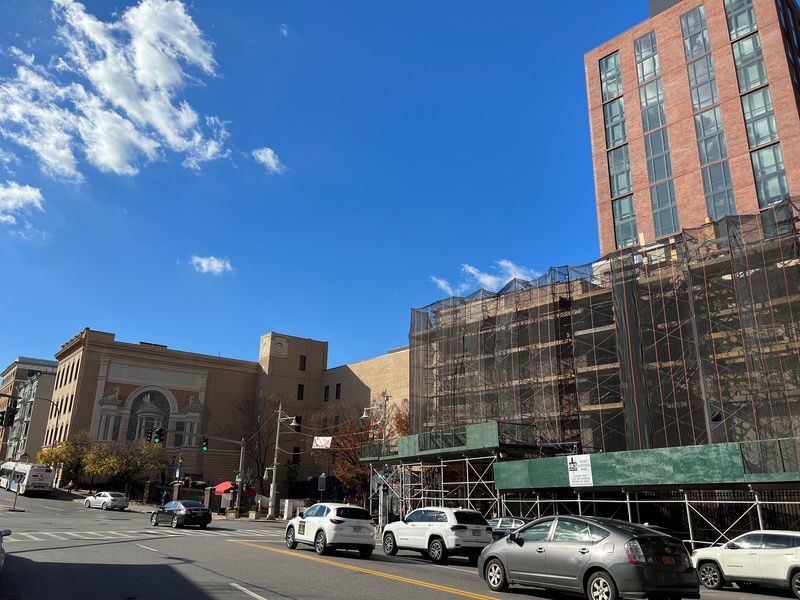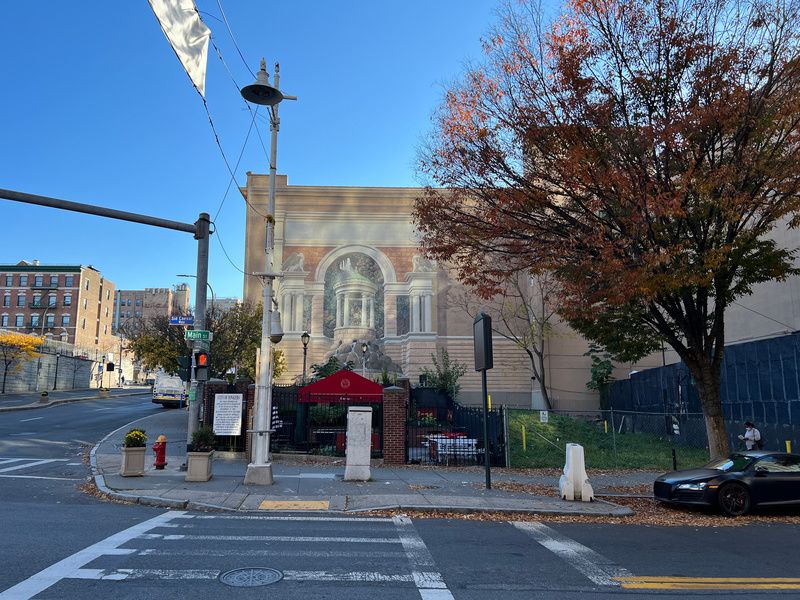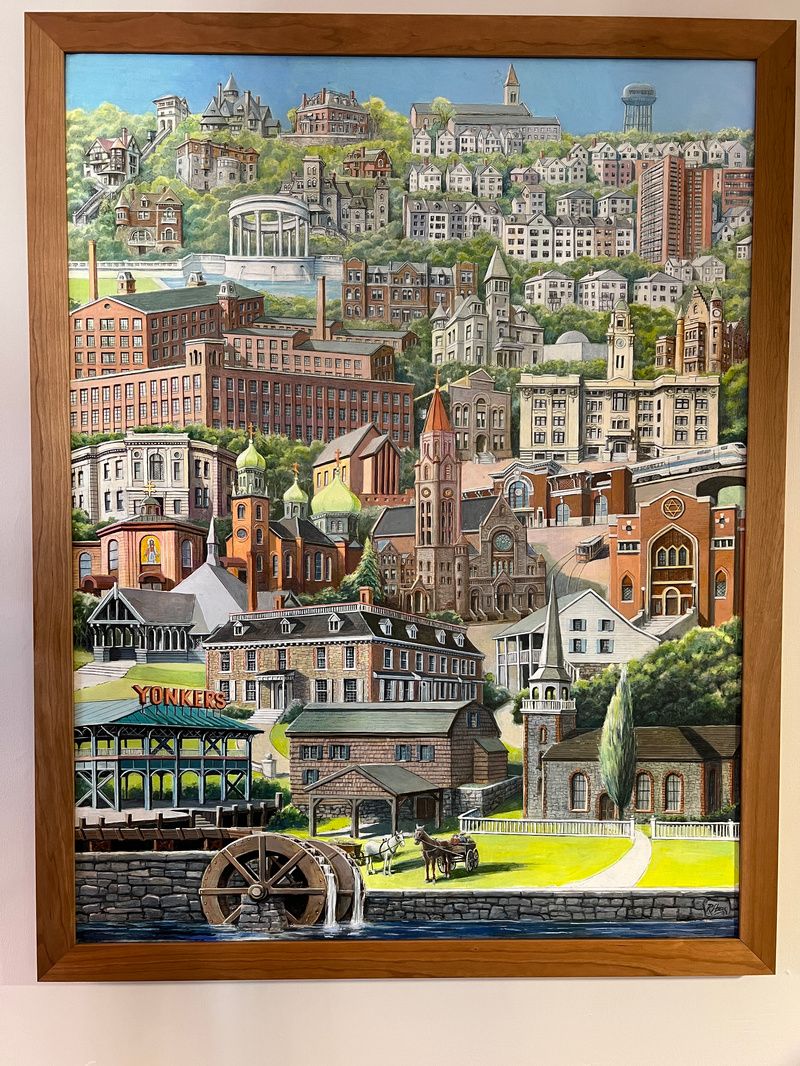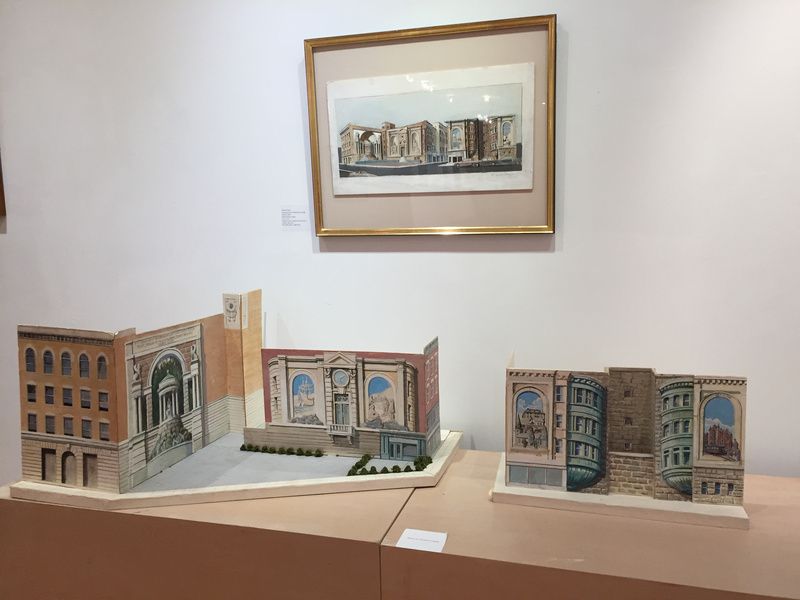Last-Minute NYC Holiday Gift Guide 🎁
We’ve created a holiday gift guide with presents for the intrepid New Yorker that should arrive just in time—


Richard Haas is an architectural muralist whose monumental trompe-l’oeil works adorn the facades of buildings in New York, across the United States, and in Munich, Germany. Three murals in Yonkers titled “Gateway to the Waterfront” were commissioned by the city in 1997. They depicted semi-imagined visions of Yonkers’ 378-year history. Like his other works, they were strikingly three-dimensional, seeming to draw the viewer into windows painted on flat walls. Now, two of them are gone and the final mural is at risk.

The city of Yonkers has gone through difficult times but has bounced back in recent years, with new developments in the downtown and waterfront areas. Market-rate apartment buildings are under construction adjacent to historic buildings like Philipse Manor Hall, a National Historic Landmark and one of the state’s oldest structures, built in the 1680s. What that has meant is that some of Haas’ murals in Yonkers have not survived the revitalization efforts. Despite receiving a historic designation in 2016, two of the murals he painted downtown were demolished, in 2016 and 2020 to make way for commercial and housing developments. Those projects have made only limited progress.
The three murals depicted scenes from Yonkers history that include the people and places of the city. There were Native Americans and Dutch settlers, scenes of an eighteenth-century English village and the historic Philipse Manor mill as well as interpretations of late nineteenth-century industrialism. Haas’ artistic inspirations have been the Baroque and Rococo periods; the architect Balthasar Neumann, the Asam brothers, the Zimmermann brothers in Germany, and the Italian artists Tiepolo and Piranesi.

The remaining mural is fenced off, but can still be seen at the corner of Riverdale Avenue and Main Street, a few blocks from the Yonkers train station. A quote above the mural is from the 1938 Broadway play “The Merchant of Yonkers,” by Thornton Wilder, who won three Pulitzer Prizes, for the novel “The Bridge of San Luis Rey” and the plays “Our Town” and “The Skin of Our Teeth.” “The Merchant of Yonkers” went through several incarnations. It was based on an 1835 English play and an 1842 Austrian play, was reworked by Wilder as “The Matchmaker” and finally ended up as the inspiration for “Hello, Dolly!” (In that musical, the matchmaker Dolly Levi traveled to Yonkers to find a mate for a wealthy merchant.) The pair of Persian sphinxes depicted in the mural sitting atop pedestals are still standing in Untermyer Park, a National Historic Landmark 2.5 miles north of downtown Yonkers.
Haas, who is now 86 and lives in Yonkers, is resigned to the sometimes ephemeral nature of his art. Like a self-destroying Banksy work, some of it is eventually consigned to the ash heap of history, or perhaps its construction dumpsters, as older buildings are demolished to make way for new ones. He has said that when he sees a building with his art razed or painted over, “I get these little stabs of pain as I see my murals fading away, but I knew when I made them that it was part of the process.”


The city of Yonkers promised that the Richard Haas murals would be recreated elsewhere in the downtown area, but that has not happened yet. There has been no word about how long the remaining mural may stand. Haas recently painted a small-scale work cramming many of the city’s landmarks, some of them no longer in existence, into one fanciful depiction of its history. It is on display as part of the newly renovated Philipse Manor Hall, a block away from the murals.
Next, check out Inside Alder Manor: A Tycoon’s Mansion in Yonkers and 10 Secrets of the Yonkers Racewa
Subscribe to our newsletter